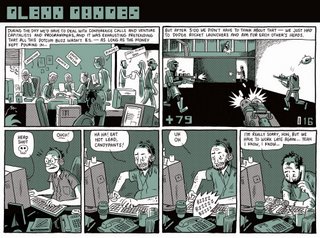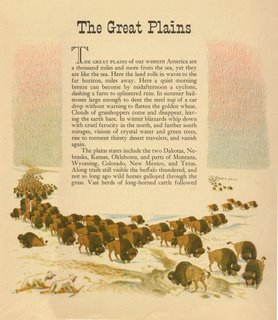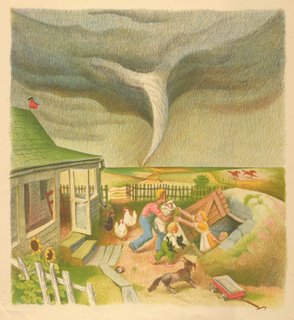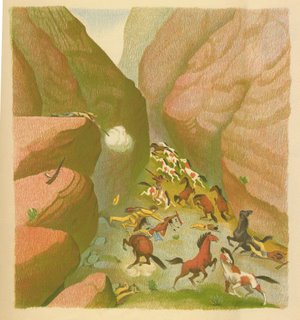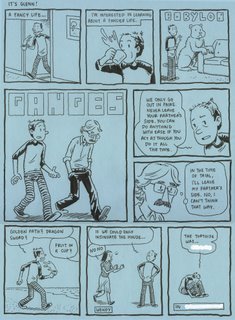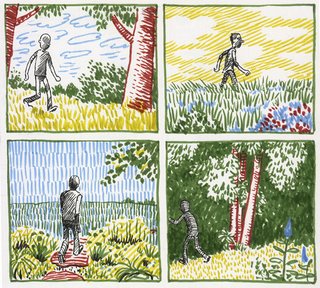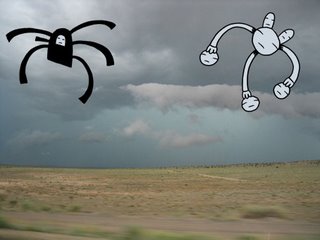
This thoughtful and pointlessly melancholy man has been living for many years, by now, in the basement, because the house that rose above it has been destroyed or is uninhabitable. When the religious wars broke out, he had hoped it was a question--he was a foreigner in that country and practiced another religion--of the customary depravities to which that region's inhabitants were inclined, all of the sanguineous of dying in some noisy and exhibitionistic way, and of killing others with particular cruelty. He bore no love for that country, where he lived as the secretary to the ambassador of another country, where wars of religion were not waged. His country fought atheistic wars, scientifically based. At the moment when the wars of religion had broken out, the secretary had been unable to return to his native land, where a ferocious scientific war was then underway: a war concerned, at least in origin, with hexagons and acids, but which bit by bit had then expanded to the inclusion of nearly all the disciplines, with the sole exclusion of ancient history. Now, the secretary, whom you see in sober dress, has been said, in generic terms, to practice another religion, but there is also the possibility that he practices none at all. What his country most respects is allegiance to ideals upon scientific bases; he himself, however, has no great love of science, and if he had to choose a field in which to specialize, ancient history would be his choice. But since this is the only non-controversial subject, choosing it would have been regarded as suspect, and derided as cowardly. He would have been put to death. Fortuitously, the outbreak of the religious war had allowed him to give no response to requests for clarification that had come from his homeland, but at the very same time he had definitively exiled himself in the country of religious wars. For years he had ventured no more than a few dozen yards from his cellar; he was probably the only foreigner left in a country where massacre was pandemic, and becoming pedantic; a country that no longer had cities, but picturesque expanses of ruins awaiting the death of the last combatant, so as then to grow ivy-covered and be transported into History. Though he had never admitted it in so many words, he liked to live in that territory precisely for its being the theater of a war that was alien to him. So History was none of his doing, but was something perceived as a rumble to which he had grown accustomed; as a lover of ancient history and dead languages, he too looked forward to living--as had always been his dream--in a country made only and entirely of ruins among grasses that have no history.
--Giorgio Manganelli,
translated by Henry Martin,
from Centuria: 100 Ouroboric Novels
Also see this BLDGBLOG post.
























